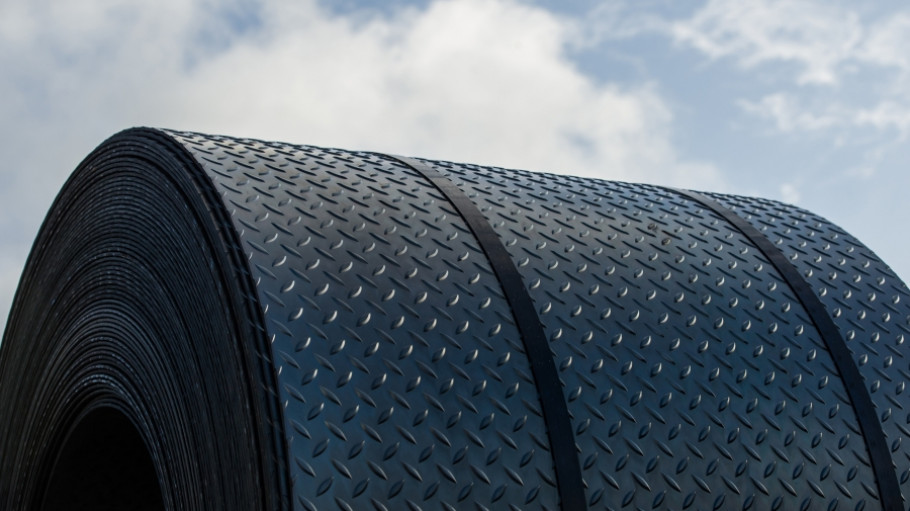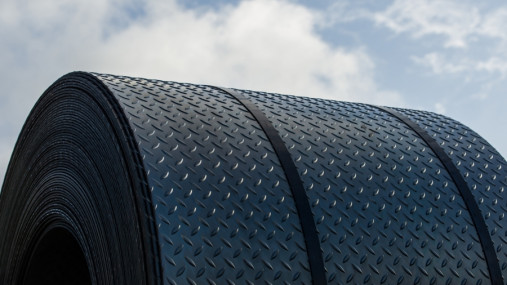
Press releases » Continuation of Global Forum on Steel Excess Capacity a pre-condition to intensified battle against trade distorting overcapacity
Continuation of Global Forum on Steel Excess Capacity a pre-condition to intensified battle against trade distorting overcapacity
Downloads and links
Recent updates

Brussels, 09 July 2020 – With the Global Forum on Steel Excess Capacity (GFSEC) having been reactivated, the European Steel Association (EUROFER) has called for an intensification of its ongoing work. The GFSEC is a key forum to establish the transparency necessary to map global overcapacity – a pre-condition to facilitate capacity reductions globally.
“The EU steel industry had already reduced its steel capacity by over 22 million tonnes during the past ten years while at the same time other regions continued to install new, export-oriented capacity that the world simply does not need. EUROFER had therefore, been calling for the government-led Global Forum to be extended, as its mandate had come close to expiring. The vast majority of participating countries agreed and had also asked for it to be relaunched. We are glad that the work of the GFSEC is to continue”, said Axel Eggert, Director General of EUROFER.
At the Global Forum’s stakeholder consultation on 7 July, representatives of the worldwide steel industry explained to governments the impact of the COVID-19 on steel sectors and formulated clear recommendations to intensify the ongoing work of the Global Forum. The formal GFSEC meeting between members is taking place on 8-9 July 2020.
Both developed and developing economies are experiencing severe demand depressions ranging between 10 to 11% as a result of the pandemic. The crisis has caused the sharpest drop in steel demand since the global financial crisis. The expected global fall in steel demand is 6% for the year, with sharp drops during the ‘lockdown’ being contrasted with a more tentative recovery.
“The EU market was hit much more severely by the crisis, following already weak market conditions in 2019”, said Mr Eggert. “As a result of the sudden collapse in EU steel demand, EU steel production has been cut drastically, by about 28% from mid-March to date, while at the same time cheap offers at our borders are depressing prices jeopardising any sustainable recovery.”
“The depression in demand has worsened the existing problem of global excess capacity, particularly as some regions continued to increase production, notably China,”, added Mr Eggert. “EUROFER, together with regional steel industries are calling on governments to intensify the ongoing work of the GFSEC, as its work is becoming more important than ever”.
“Transparency in addressing capacity-related subsidisation and support measures should remain the policy focus of the Forum. China should come back to the table. Moreover, we ask for intensive monitoring of the evolving situation of global overcapacity in light of demand per region”, said Mr Eggert. “Only if the global steel industry has reliable statistics on capacity and demand can informed investment and closure decisions be made”.
The Global Forum on Steel Excess Capacity was formally established on 16 December 2016 in Berlin. The Global Forum brings together G20 members and interested OECD members, that represented around 90% of global steel production and capacity until China stepped out of the Forum at the end of 2019. China represents over 50% of the globe’s steel capacity and production. The Global Forum meeting was on 8-9 July 2020, with steel stakeholders meeting earlier this week, on 7 July.
Contact
Charles de Lusignan, Spokesperson and head of communications, +32 2 738 79 35, (charles@eurofer.be)
About the European Steel Association (EUROFER)
EUROFER AISBL is located in Brussels and was founded in 1976. It represents the entirety of steel production in the European Union. EUROFER members are steel companies and national steel federations throughout the EU. The major steel companies and national steel federations in Switzerland and Turkey are associate members.
The European Steel Association is recorded in the EU transparency register: 93038071152-83.
About the European steel industry
The European steel industry is a world leader in innovation and environmental sustainability. It has a turnover of around €170 billion and directly employs 330,000 highly-skilled people, producing on average 160 million tonnes of steel per year. More than 500 steel production sites across 22 EU Member States provide direct and indirect employment to millions more European citizens. Closely integrated with Europe’s manufacturing and construction industries, steel is the backbone for development, growth and employment in Europe.
Steel is the most versatile industrial material in the world. The thousands of different grades and types of steel developed by the industry make the modern world possible. Steel is 100% recyclable and therefore is a fundamental part of the circular economy. As a basic engineering material, steel is also an essential factor in the development and deployment of innovative, CO2-mitigating technologies, improving resource efficiency and fostering sustainable development in Europe.

Strasbourg, 17 December 2025 – The European Commission’s latest proposals on the Carbon Border Adjustment Mechanism (CBAM), unveiled today, correctly identify several loopholes that risk undermining its effectiveness, notably regarding EU exports, downstream sectors and circumvention practices. However, despite these laudable efforts, the measures put forward fail to deliver a comprehensive and durable response to carbon and jobs leakage, warns the European Steel Association (EUROFER).
A milestone occasion to quickly and effectively restore affordable electricity, to relaunch the
decarbonization and strengthen the international competitiveness of the European steel
industry.
Brussels, 02 December 2025 – Unchanged negative conditions – U.S. tariffs and trade disruptions, economic and geopolitical tensions, protracted weak demand and still high energy prices – continue to weigh on the European steel market. EUROFER’s latest Economic and Steel Market Outlook confirms for 2025 another recession in both apparent steel consumption (-0.2%, unchanged) and steel-using sectors (-0.5%, revised from -0.7%). A potential recovery is expected only in 2026 for the Steel Weighted Industrial Production index (SWIP) (+1.8%, stable) and for apparent steel consumption (+3%, slightly revised from +3.1%) – although consumption volumes would still remain well below pre-pandemic levels. Steel imports retained historically high shares (27%), while exports plummeted (-9%) in the first eight months of 2025.